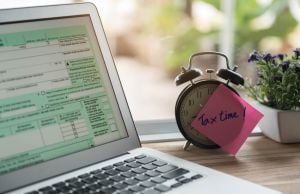Paying bills in the Cook Islands
Subscribe to the topic
Post new topic
Hello everyone,
What bills do you pay? If you are renting, are bills included in the price of rent, and is this common practice in the Cook Islands?
How can you pay your bills (e.g. online, at provider's store, at the post office)? Which is the most convenient or reliable way?
With what frequency are different bills sent in the Cook Islands? Are there different deadlines for payment?
Thank you for sharing your experience.
Priscilla
Paying bills in Cook Islands can vary a bit on where you are located.
There can for example be a difference between Rarotonga and Aitutaki
In Aitutaki you don't pay a water bill and you don't pay for the garbage pickup. It is somehow included in the communal services.
To my knowledge there are no apartments in Aitutaki, there are commonly 4 ways of living really.
1. Buy a lease. You buy the rights to rent a property during a specific time period. This period is maximum 60 years but could be less. You can use the land as you want (pending zoning), if you want to build a house or barn. Most people build a house and live on this leased property. It is yours, until the lease is over. Every year you have to pay the land owner lease money. See it as paying a small rent. The annual fee is usually very small. This is usually paid hand in hand as cash or a check with a handshake.
2. Temporary rent from someone that owns a lease and land but is currently residing somewhere else. Usually they will have a relative or friend taking care of the payment. Commonly cash or check but on occation you can wire money to their account in the country they are in.
2. Rent a motel room or cabin. The tourist places will give you a great deal if you rent from them on long term. I seen prices go down to less than 50% on some holiday homes if you rent longer than a month. This can be a good way of staying until you bought a lease and built your house. This can usually be paid by card, cash or check. Sometimes you can get a discount if paying cash.
3. Rent a room, some people let you rent a room or even a bed in their home for a shorter time. A way of room mating. Payment is usually cash.
The other big bill is the electric bill. This bill can run quite high because electric in Cook Islands is expensive per KWh. Somewhere I read that about NZ$60 per month is an average light bill. That equals to approx US$44.6 which in itself is not very much but then consider that you cant compare Cook Island wages to USA wages.
This price do include the 15% VAT/Sales Tax. The electric bill can be paid directly in the TAU office of the electric company or you can mail a check. It might be possible to wire. I have not looked into it. The island is very small and it is so easy to just sneak in while driving by on another errand than have to deal with sending checks and stuff.
There may be other things in need to pay bills for. Some examples.
1. Insurance. Easiest is to have your insurance company take autopayments directly from your account. They are always the same, the electric bill can vary.
2. Phone, most people today have stopped the land-line and have gone over to cell phone service. It is very popular to use pre-paid cards. They can be filled basically anywhere, not true, but any store. You can also fill it on their website using your debis/credit card. Most people also use this for data. Data is really expensive in Cook Islands and there is no complete broadband service (broad band definitions vary from country to country).... There is no internet connection at all that is not limited in data.
3. Bank loans interest and amortization. I dont recomend taking loans but sometimes it is a necessary evil. Some interest rates goes up to near 10%. No less than 1% likes in Sweden lol. Usually your bank can arrange for auto payments from your account.
4. There can be a number of different bills depending. Here are some examples.
A. Some people have an account at the favorite grocery store and pay it every Fortnight or Month. Payment by cash or card just like when you pay your groceries. This is a benefit of being on a small island. Noone can run from the bill so it is usually easy to get a credit. You in a hurry, run in the store, grab your bread and ask them to put it on your tab and run out without passing the register. Perfect.
B. In the beginning you may not have your own vehicle but be renting. If you rent through a renting agency make sure to pay by card, that many times ads insurance. If you rent privatly then pay cash.
C. Contractors and similar services is usually invoiced. Pay by card at their office, cash or check.
Articles to help you in your expat project in the Cook Islands
 Tax in Cook Islands
Tax in Cook IslandsThe Cook Islands is a bit of a tax-haven compared to many other countries. There is indeed taxes but they are low ...
Find more topics on the Cook Islands forum



